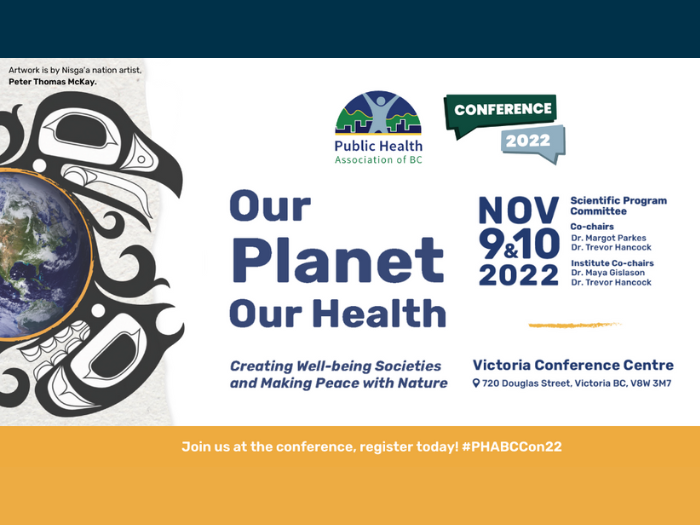Our Planet, Our Health: Creating Well-Being Societies and Making Peace with Nature
The Public Health Association of BC conference takes place Nov 9 and 10, 2022.
The topic of this PICS-sponsored event is “Our Planet, Our Health: Creating Well-Being Societies and Making Peace with Nature”. This topic was inspired by recent WHO and UN initiatives, as well as the importance of recognizing the role Indigenous knowledge has in creating a healthy relationship between humans and the Earth.
There is local and global urgency to focus on making peace with nature. According to the UN Secretary General Antonio Guterres, “Humanity is waging war on nature. This is suicidal.” (December 2020). The UN 2021 report Making Peace with Nature further identified climate change, biodiversity loss and pollution as a “triple crisis” that threatens our well-being.
Creating well-being societies is dependent on making peace with nature and focusing on ecojustice and applying an eco-social approach to everything we do. The public health community has an opportunity here to weave eco-social approaches into their work to address both ecological and social injustices. Creating a truly healthy public will only be possible if we work together to create healthy, sustainable and equitable communities.
Conference Themes and Structure:
To invigorate public health practice, education and research towards a healthy, just and sustainable future. The conference plenary sessions will focus on four inter-related themes:
- Making Peace with Nature for Public Health
- Ecojustice/Eco-social Equity and Public Health
- Well-being Societies
- Local (Practice) and Action
See the draft program here.

